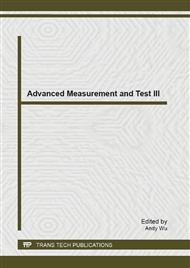p.2197
p.2202
p.2208
p.2214
p.2221
p.2228
p.2232
p.2237
p.2242
The Relationship between Online Reading Literacy and ICT Familiarity for Junior High School Students
Abstract:
The purpose of this study was to investigate the relationship between students'performance in online reading literacy and Information Communication Technology (ICT) familiarity for junior high school students. The primary data collection instruments were the researcher-designed Taiwan Adolescent Digital Reading Assessment and the PISA 2003 (Programme for International Student Assessment) ICT familiarity questionnaire to illustrate features of online reading literacy, overview of ICT familiarity, and interpretation of ICT familiarly with respect to online reading literacy. A total of 601 8th graders, 317 male and 284 female, participated in this study (N=601). Polytomous Rasch unidimensional IRT was adapted to estimate the scale scores and indicators, and linear regression was used to analyze the interpretation of all indicators toward online reading literacy. The results indicated that the online reading literacy of most students was situated on grade level. 8th graders can retrieve information from single webpage, can retrieve one or more source of information across multiple webpages, and can interpret the location of the information after searching several webpages; they can integrate information from designated webpages or from problem-related webpages; they can evaluate the reliability of data sources. 8th graders have reasonable frequency of computer use, and moderate computer using confidence. There is no significant difference of ICT familiarity between males and females. Among all the variables of ICT familiarity, frequency of using computer at home ranked first for explaining the online reading literacy level (R2=.14). However, frequency of using ICT and confidence did not positively correlate with online reading literacy.
Info:
Periodical:
Pages:
2221-2227
Citation:
Online since:
July 2013
Authors:
Price:
Сopyright:
© 2013 Trans Tech Publications Ltd. All Rights Reserved
Share:
Citation:


